Love for Heritage Style Takes Brownsville's Busayo Olupona From Nigeria to Saks Fifth Avenue
Brownsville attorney turned designer Busayo Olupona has gained a following for fashions that draw on her Nigerian roots.

Busayo Olupona at Balogun market in Nigeria. Photo by Neec Nonso
Busayo Olupona walks down 5th Avenue. It’s cold but that’s not why she clutches her scarf near to her. As she draws closer to a window – a Saks Fifth Avenue window – she pulls the scarf up to cover her face, before bringing it quickly back down to take in the sight before her. “I can’t believe it! This is insane,” she beams, as she looks at the store window to see dresses she’s designed on full display. “From a small town in Nigeria, from Ile-Ife, to Saks 5th Avenue!” she says out loud, her smile extending further across her face.
The glee captured in the video that Olupona posted to her Instagram forever remains evidence of the road it has taken the Nigerian-American designer to get to where she is today. From being teased by kids at school about her hair and clothing to starting her fashion label, Busayo NYC, as a side hustle in 2011 while she practiced law during the day, Olupona has traveled a long path.
“It was a really profound, beautiful, challenging moment,” she tells Brownstoner about how it felt to see her clothes for the first time in Saks. “It felt really big; it felt like something that you’ve worked so long for but couldn’t have ever imagined.”
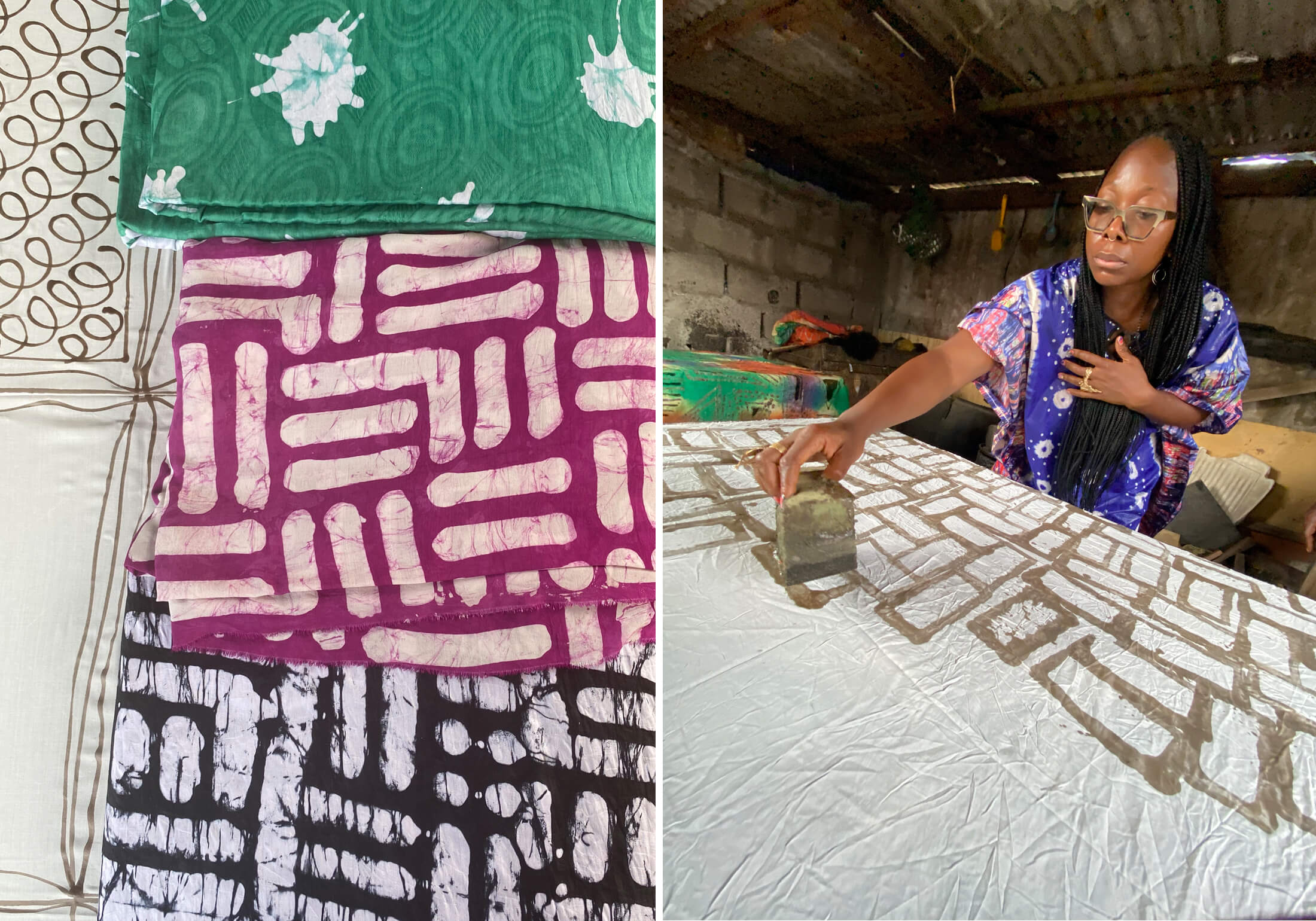
Indeed, Olupona had no idea the future she’d create for herself – and for her team back in Nigeria where the clothes are made – when she first started Busayo NYC.
Born in the U.S., Olupona moved to Nigeria when she was a toddler and returned here as a teenager, settling with her family in a small town in California. Her school days were filled with kids mocking her for the Nigerian-print clothes she wore, but as she grew older, she embraced her homegrown style even more. Part of the reason she started Busayo NYC was to make her own clothing to wear to work and strengthen her ties to the country of her heritage. Soon, others started noticing and interest picked up, leading her to realize she could share her love for the clothing and also give back to the people who inspired her love of textiles and art in the first place.
Each Busayo design is made with the company’s own fabrics using a traditional technique from the Yoruba people, from whom Olupona is descended. Called Adire, it began in southwest Nigeria at the turn of the 20th century, and involves tie-dye or batik to create colorful patterns from plain cloth. This makes Busayo NYC’s fabrics wholly distinctive and unique.
In using this old technique to create new clothing, Olupona brings tradition into the here and now of modernity, and keeps this Nigerian custom alive. “These things are still deeply relevant today,” she says. “Years ago, I went to a place where they made black soap from scratch, and you take something that small, but the fact is, I used the soap for a few months before it ran out, and my skin felt amazing. There’s a reason that soap has been made and used for hundreds of years.” For Olupona, old ways of doing things don’t have to remain tucked away; they should be reclaimed with fervor, whether that’s in Nigeria itself or as part of the diaspora here in the U.S.
In 2021, all her hard work came together, as Busayo NYC found its way into the closets of celebs like Madonna and Lupita Nyong’o, onto major e-commerce platforms like Stitch Fix and Shopbop, into independent retailers, and, of course, onto the floor of Saks Fifth Avenue.
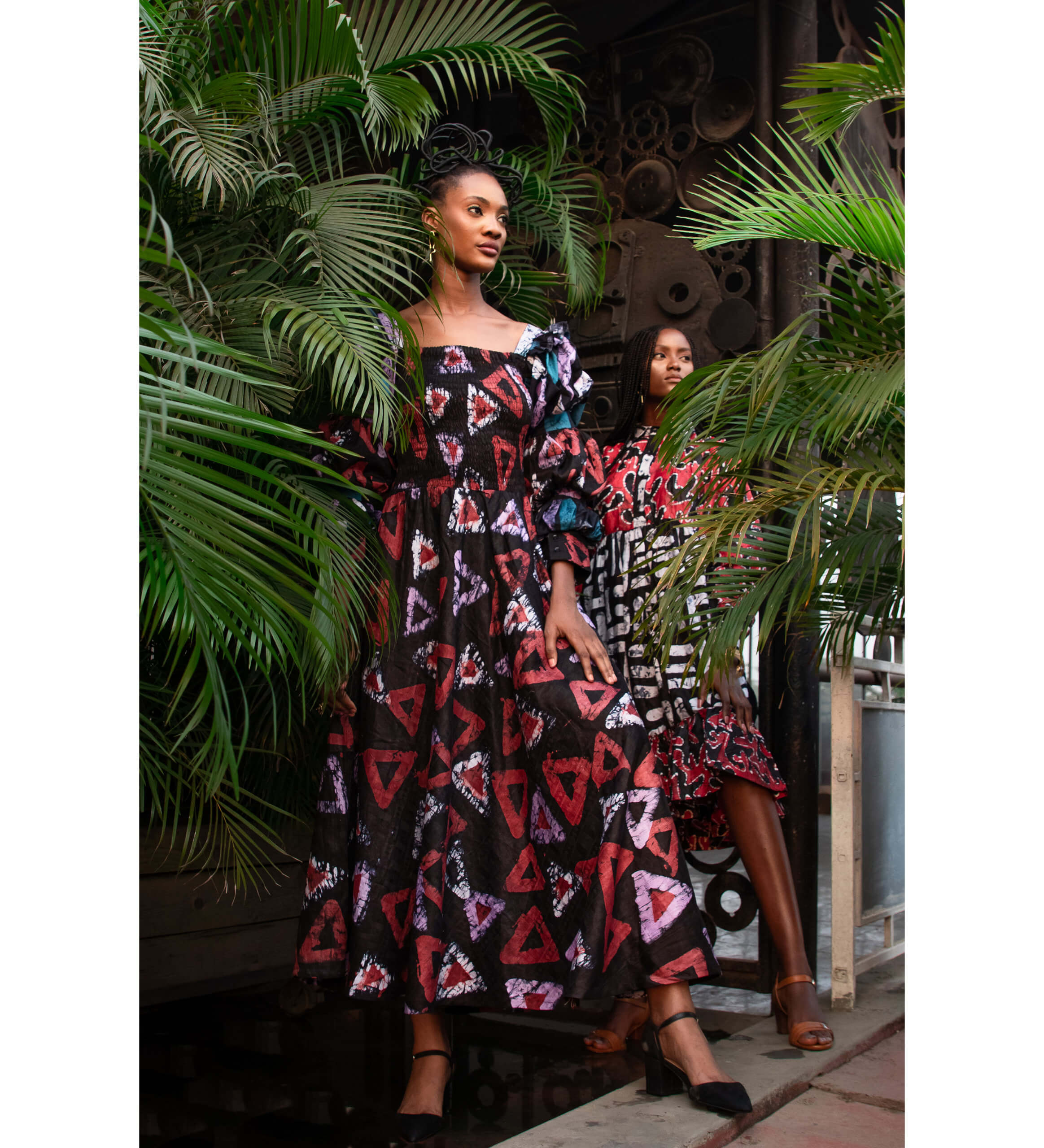
“Saks Fifth Avenue is this iconic space, so how do you imagine clothes made in Nigeria – where only 14 percent of our GDP is from things we’ve made – clothes made by our little cadre of people in the team, are now sitting in the bastion of American fashion?” says Olupona. “Coming from a place where often the press around it is extremely negative, and to be the vessel through which something positive is expressed, is very powerful.” It’s humbling and empowering, too, she adds. Since Busayo NYC designs are made in Nigeria, she’s been able to create employment opportunities to uplift people back home — something that was especially vital during the uncertainties of the pandemic.
Finding distribution for her clothing was, for a long time, the biggest challenge Olupona experienced along the way. Most would think it would have been working concurrently as both a lawyer and a fashion designer, but that she takes in stride, saying juggling the two is par for the course in the life of a New York artist. Now that she’s found the distribution – Neiman Marcus, Bergdorf Goodman, Intermix, and Moda Operandi have recently picked up the label – she has new challenges to tackle. “Now it’s about managing the scale,” she says. “It’s almost like we’ve become a small octopus and we now have all these tentacles to manage.”
In the meantime, she’s also been managing the rest of her own life. In 2017, Olupona bought a house in Brownsville, where she moved from Downtown Brooklyn. “I knew I wanted to buy a home, and had a smaller budget for the areas I had been looking in like Flatbush,” she says. Although her realtor had tried to turn her off of Brownsville for fear it wouldn’t be safe, Olupona was intrigued when she saw what it had to offer – affordable homes and a warm community.
“I’ve always relied on courage and trusting my gut to do things,” she says. “I didn’t have a bad feeling about it. My intuition felt like [moving to Brownsville] was going to be a good thing.” After finding a home that spoke to her, Olupona began infusing the space with “lots of African stuff.”
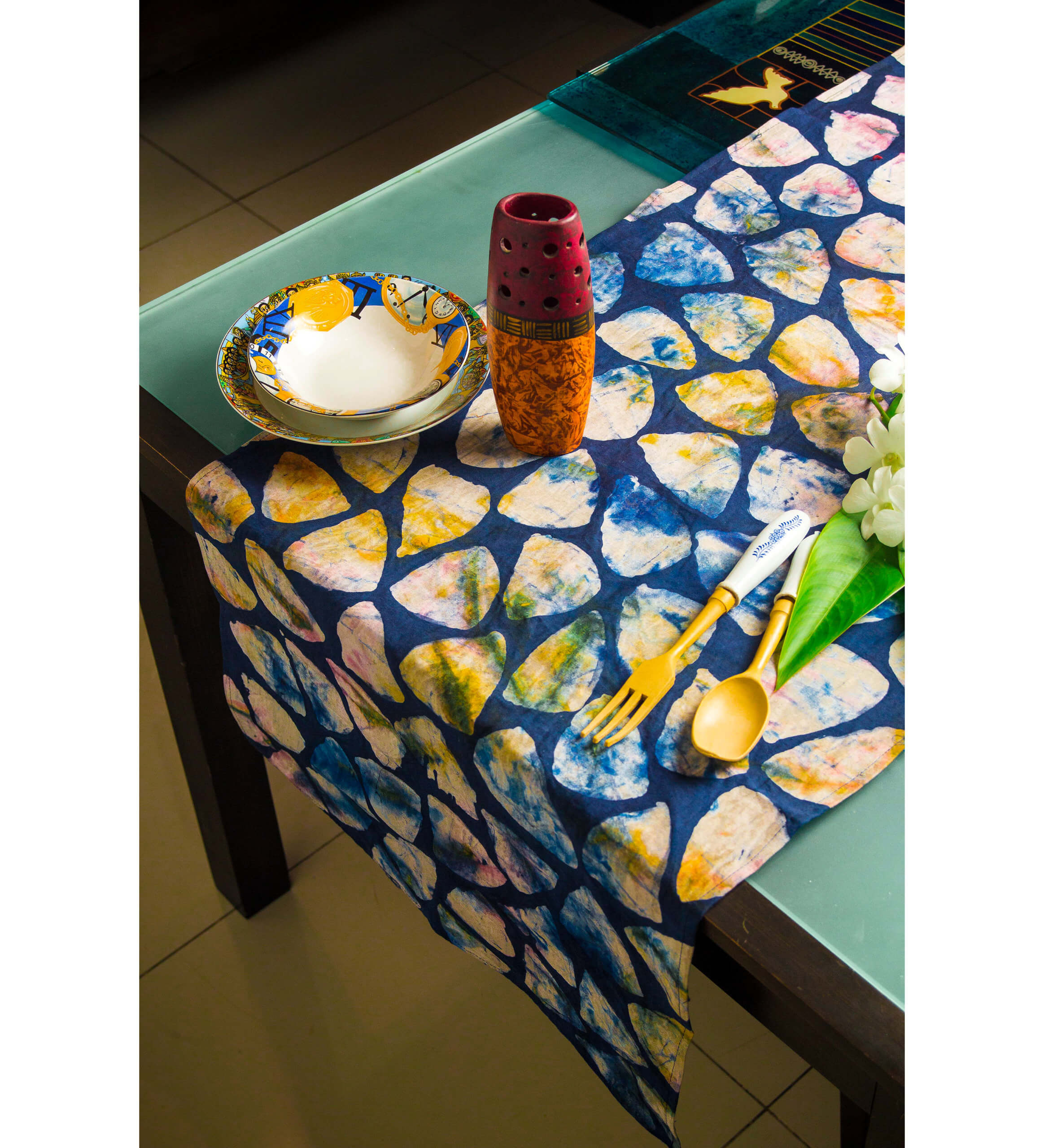
“It’s not quite a museum, but my goal is eventually to get it to feel like that; like you walk in and it’s like you’re in a museum. That’s what I’m aiming for,” she chuckles. She’s also enjoyed becoming part of the neighborhood. “Of all the neighborhoods I’ve lived in New York, Brownsville is probably the best one I’ve lived in. It doesn’t have the coffee shops and restaurants, but I wake up each day and say hi to everyone, and everyone says hi back. That’s rare in New York, where oftentimes people just look at their phones and keep it moving. Here, people are actually engaged with each other, and they take care of each other. I love that.”
Taking care of each other is a through line in Busayo NYC too. When asked what she’s most proud of when it comes to her career, Olupona answers without missing a beat. “The opportunity to create jobs for my people and for myself,” she says. “There’s something insanely powerful, especially coming from a place where jobs are scarce, in being able to create great jobs for people.”
And she means it. In the Saks Fifth Avenue video, the very next thing she does after having her moment of glee is thank her team for getting her here. For Olupona, clothes are important, but people, even more so.
Editor’s note: A version of this story appeared in the Fall/Holiday 2022 issue of Brownstoner magazine.
Related Stories
- Journey by Faith: The Story of Brooklyn’s Black Churches
- Border Crossings: Meron Hadero’s ‘A Down Home Meal for These Difficult Times’
- Turn Up the Volume: Brooklyn Dance Parties Celebrate Middle Eastern and North African Culture
Email tips@brownstoner.com with further comments, questions or tips. Follow Brownstoner on Twitter and Instagram, and like us on Facebook.

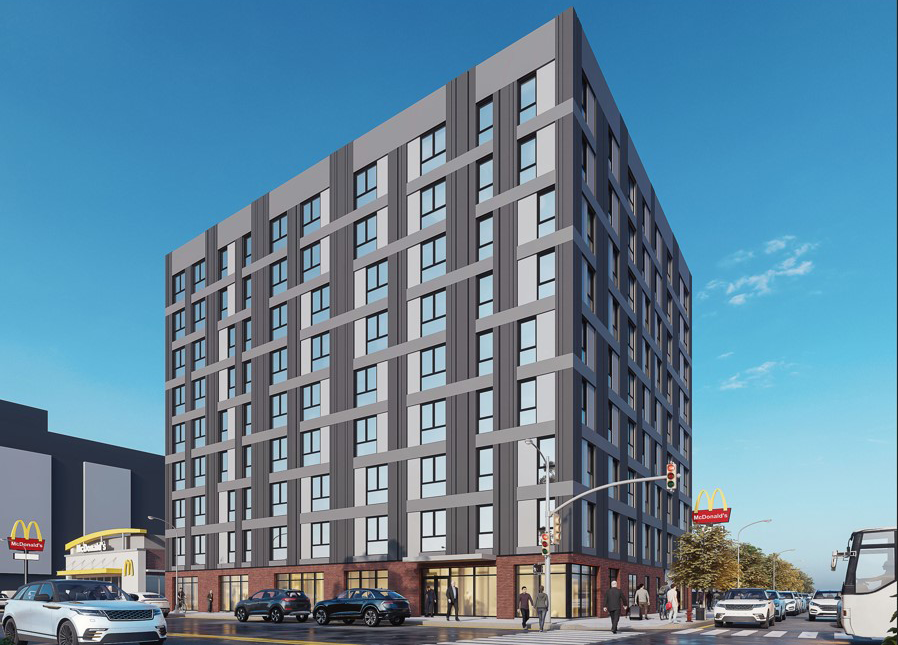
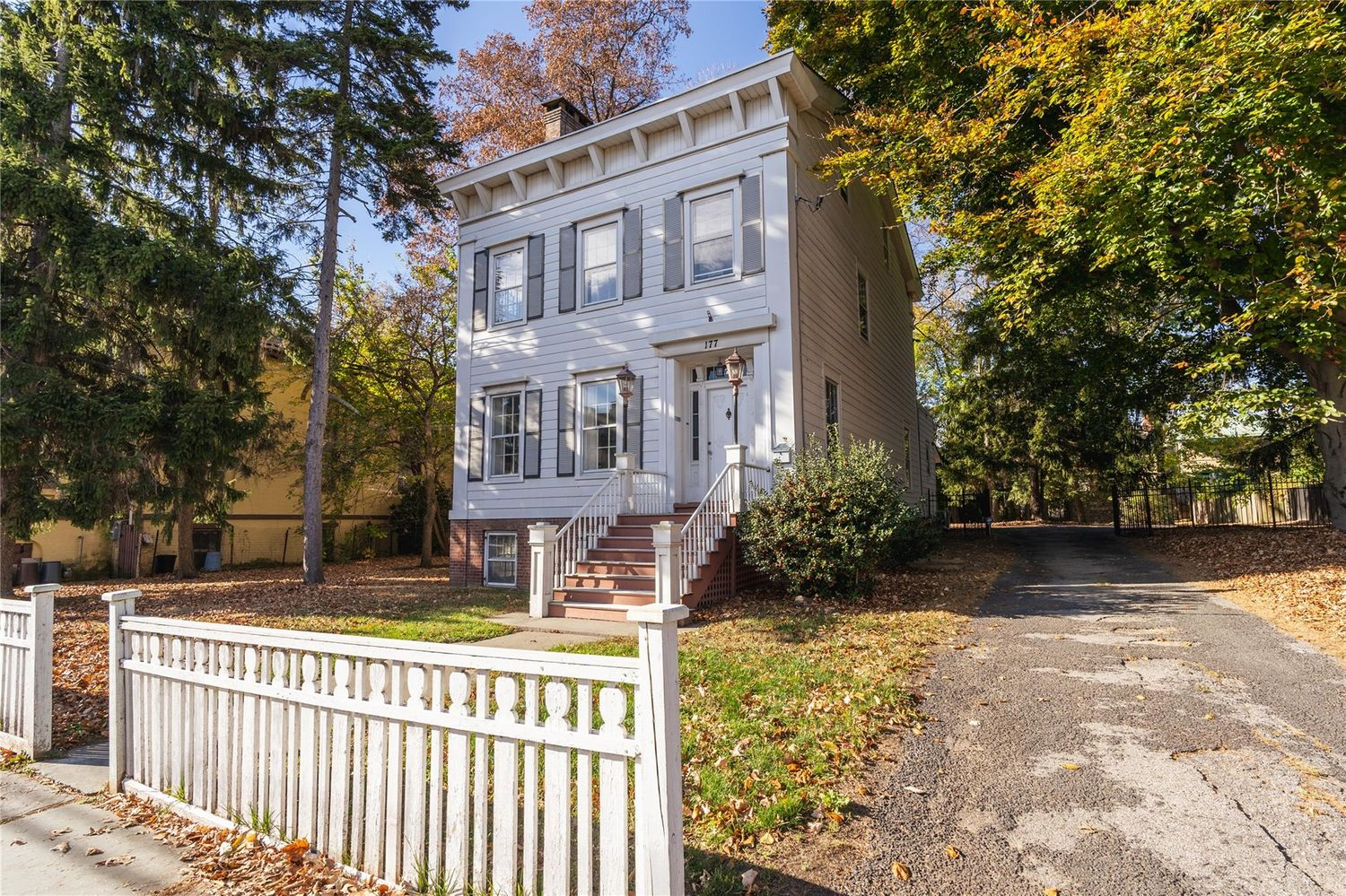
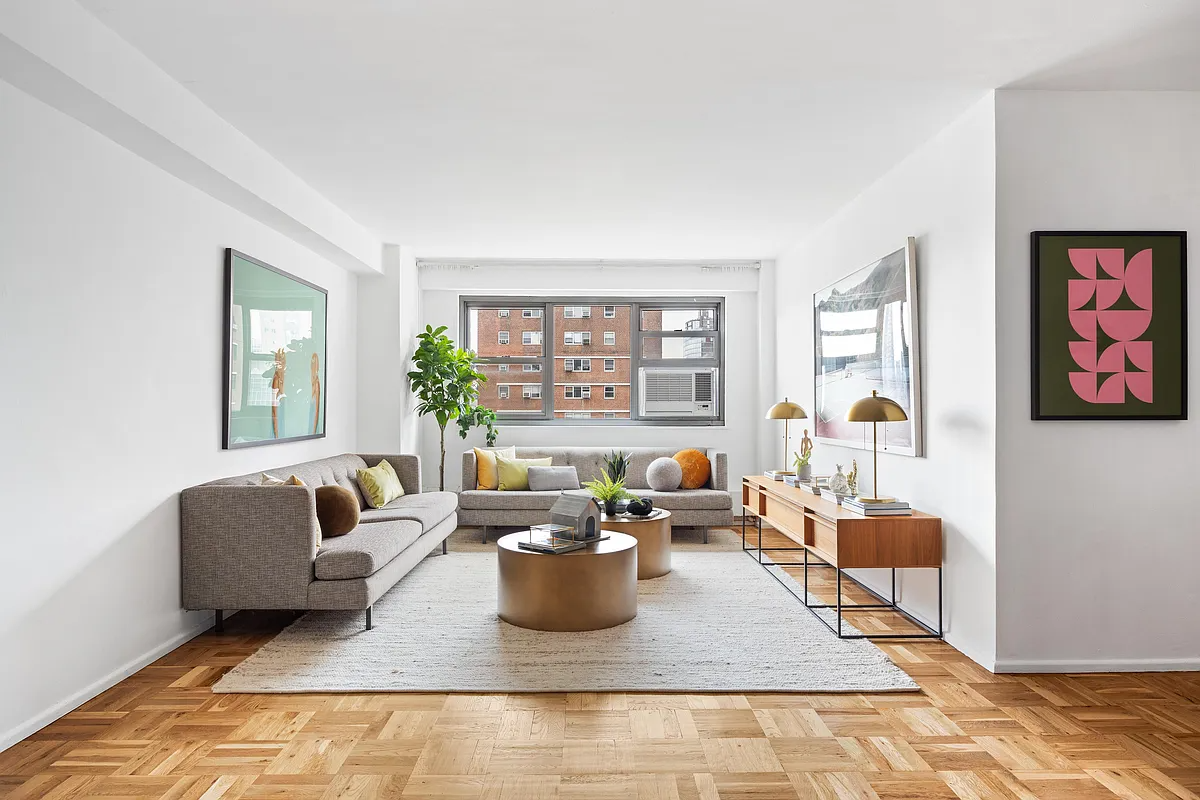





What's Your Take? Leave a Comment